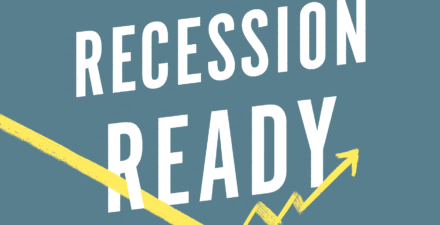Equitable Growth president and CEO responds to passage of the Coronavirus Aid, Relief, and Economic Security Act
FOR IMMEDIATE RELEASE
March 27, 2020
Contact:
Elena Waskey, 410-598-7532
ewaskey@equitablegrowth.org
WASHINGTON – Today, the president signed the Coronavirus Aid, Relief, and Economic Security Act, providing $2 trillion in federal aid to Americans affected by the coronavirus pandemic and related economic shutdown. The Washington Center for Equitable Growth commends Congress and the president for passing a significant federal rescue package to help families and workers, many of whom are in low-wage jobs serving on the front lines of this crisis.
Importantly, calls for a payroll tax cut and prioritizing the richest households were rejected after economists explained neither would deliver support to families directly affected by the crisis nor provide a now desperately needed macroeconomic boost. Equitable Growth experts, both in-house and those in our academic network, played a key role in ensuring the legislation included as many evidence-based policies as possible.
In particular, the law provides a four-month increase of $600 a week in Unemployment Insurance benefits to everyone who loses their job, including self-employed workers and so-called gig economy workers such as drivers for Uber Technologies Inc. and Lyft Inc. Also included is $350 billion in forgivable loans to small businesses and nonprofits that maintain their existing workforces. This is on top of extensions of paid sick days to many workers—including self-employed and gig workers—in legislation passed on March 18.
Also notable is the law’s commitment to investments that could help prevent a more severe and long-term economic depression. Included in the pandemic relief package is:
- One $1,200 payment to nearly every American, with phase-outs for high-income earners and a $500 per child bonus for families
- $150 billion in federal aid to states to help them continue to provide much-needed services during this period of revenue shortfalls
- More than $180 billion in new spending to support the healthcare sector and communities addressing the coronavirus epidemic
But the law also falls short in some critical ways. First, the two weeks of paid sick leave included in earlier legislation—the Families First Coronavirus Response Act—is not only insufficient, but also allows for many exemptions by small and large employers. An estimated 5 million workers across the United States who work at some of the largest food service and retail employers do not have access to any paid sick days, according to research from The Shift Project. Failure to implement a robust paid sick leave policy during this public health crisis is nothing short of negligent.
Second, nearly $500 billion has been earmarked for corporate bailouts, including hotels, airlines, and other Fortune 500 companies. Though the law includes limits on companies’ stock buyback ability, dividends, and executive compensation, the secretary of the Treasury has the authority to waive those limits. Most notably, employers are under no obligation to keep workers on payroll.
Though changes to unemployment insurance eligibility, aid to small and medium-sized businesses, and direct payments provisions in the legislation are a positive step, it is disappointing that these measures are only temporary and have no ties to the health of the economy. In other words, these provisions will end regardless of whether the country continues to experience a policy-driven recession as a result of necessary social distancing.
Research shows that significant, direct, lump-sum stimulus payments to individuals in response to a recession are effective at boosting the economy, as are steps including ensuring that unemployment insurance reaches all those out of work, sufficient nutrition assistance is available, and that states have the support they need from the federal government to maintain services. Each of these will be required as long as the downturn continues, as outlined in Recession Ready: Fiscal Policies to Stabilize the American Economy, a book Equitable Growth produced with The Hamilton Project. By failing to include a long-term plan in the law, policymakers have missed an opportunity to create durable relief to alleviate this recession and prepare us for the next.
Following is a statement by Heather Boushey, president and CEO of the Washington Center for Equitable Growth:
The coronavirus is first and foremost a public health crisis. In order to address the health crisis, policymakers have essentially put the economy “on ice,” inducing a downturn. Historically high economic inequality, combined with a porous social safety net, has made the United States particularly vulnerable to economic shocks such as the one we’re now experiencing. This economic fragility is a direct result of policymakers prioritizing markets over people for the past 50 years.
I commend Congress and the president for passing the Coronavirus Aid, Relief, and Economic Security Act and now urge them to focus on quick and sound implementation. In particular, federal agencies should not be allowed to create unnecessary carve-outs, drag their feet on provisions that help workers, or pay favors to political allies.
Though the law demonstrates a step in the right direction, there is more work to be done. Specifically, the next federal stimulus package must include permanent paid sick, medical, and caregiving leave; long-lasting and critically needed improvements to the Unemployment Insurance system; automation of direct payments in times of recession so the government can more quickly and easily send out checks; an increase in benefits to the Supplemental Nutrition Assistance Program for needy families; an increase in federal aid to the states; and ongoing support to our nation’s healthcare system.
Further, lawmakers erred by including provisions in the bill that deliver relief to big business without imposing appropriate conditions that ensure the help gets to workers. During the Great Recession, Congress bailed out Wall Street and the Federal Reserve stabilized the stock market, as individuals, families, and small businesses suffered. A straight line can be drawn between those policy choices and the sky-high wealth inequality we now experience, which has made our economy perilously fragile.
People are the foundation of the economy and must be prioritized over profits. Without people to work the jobs and buy the goods and services produced, there is no economy.
The Washington Center for Equitable Growth has developed policy principles for confronting the coronavirus recession, which outline how policymakers should respond to the growing crisis. Additional resources related to the coronavirus recession can be found here.
The Washington Center for Equitable Growth is a nonprofit research and grantmaking organization dedicated to advancing evidence-backed ideas and policies that promote strong, stable, and broad-based economic growth. For more information, see www.equitablegrowth.org and follow us on Twitter and Facebook @equitablegrowth.




